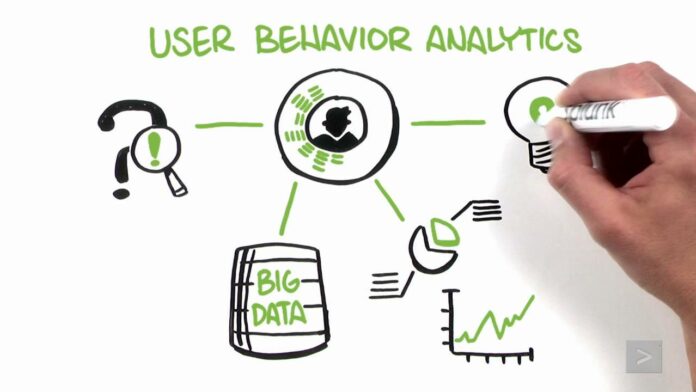Organizational success in the dynamic landscape of modern business hinges on effective stakeholder engagement: customers, employees, and investors–all wield significant influence over an organization’s trajectory. To adeptly navigate these relationships; therefore, organizations depend heavily on analytics as well as reporting tools. Invaluable insights into engagement effectiveness, along with tracking essential key performance indicators (KPIs)–these are the provisions these tools offer. They thus underpin an organization’s alignment with stakeholder expectations and goals: a crucial function in maintaining relevance in today’s complex landscape.
Tracking key performance indicators (KPIs) in stakeholder engagement
The ability to track and measure key performance indicators (KPIs) is central to effective stakeholder engagement. These quantifiable benchmarks provide insights into the success and impact of engagement initiatives: customer satisfaction scores; employee engagement levels; investor sentiment indices–and community impact metrics, among others. Organizations, by actively tracking these KPIs, can identify trends and address issues in real time; this optimization of engagement strategies is made possible.
Gaining insights and improving strategies
Organizations harness the power of analytics and reporting tools to delve deeply into stakeholder behavior, preferences, and sentiment; they analyze data from diverse touchpoints – channels included. In doing so: valuable trends, patterns–even correlations emerge. These insights become a compass for strategic decision-making–an ability that allows organizations not only to navigate effectively but also tailor their engagement strategies with precision in meeting continually evolving stakeholder needs. For instance: when organizations analyze customer feedback across multiple platforms; they can identify areas for product improvement–thus refining their marketing strategies.
Stakeholders support the streamlining of the boda boda sector with a push for licensing
Demonstrating impact and driving decision-making
Analytics and reporting tools do more than measure the effectiveness of engagement; they are crucial in demonstrating its impact. Organizations can present performance metrics and data-driven insights to showcase their initiatives’ tangible benefits, thereby reinforcing stakeholder engagement’s importance while informing decision-making throughout the organization. Insights from employee engagement data, for example, may initiate investments in training programs or workplace initiatives; this is to boost productivity and morale.
Enabling data-driven decision-making and anticipating trends
Organizations leverage advanced analytics techniques through the use of reporting tools and analytic software. They employ predictive modeling, sentiment analysis, and data visualization to not only anticipate future trends but also identify risks while capitalizing on opportunities. Real-time data analysis allows organizations to adapt rapidly in response to shifting market dynamics and stakeholder expectations. For instance: through the analysis of customer sentiment data–an action that illuminates market preferences, graduate-level organizations can anticipate shifts; accordingly adjusting their product offerings to not only remain competitive but also maintain an edge.
Enhancing risk management and mitigation
Organizations utilize analytics and reporting tools as valuable assets in risk management and mitigation for stakeholder engagement initiatives. Through an analysis of data trends and patterns, they identify potential risks, and anticipate challenges that could impact their relationships with stakeholders. Implementing preemptive measures to mitigate risks and address issues before escalation is a key advantage of proactive risk management within these entities. For instance, when organizations actively monitor the sentiment on social media, they can swiftly identify and manage emerging risks to their reputation. Integrating risk management into stakeholder engagement software enables these entities to safeguard their image; this minimizes potential negative impacts and sustains trust among all involved parties.
Fostering transparency and accountability
Fostering transparency and accountability in stakeholder engagement efforts: this is the role of analytics and reporting tools. Organizations demonstrate their commitment to openness–and accountability, indeed!–by providing stakeholders with access to relevant data; they share insights that are crucial for understanding. When an organization communicates its engagement metrics transparently—alongside outcomes—it builds trust as well as credibility with stakeholders; this fosters stronger relationships thereby enhancing not only the reputation but also the overall standing of said institution within respective communities or industries. Accountability mechanisms, in addition to driving continuous improvement and adherence to stakeholder expectations, play a crucial role in ensuring organizations remain accountable for their actions and decisions. By emphasizing transparency and accountability–not only does this strengthen stakeholder relationships but it also bolsters the organization’s commitment towards ethical conduct as well as responsible business practices.
Conclusion
In conclusion, organizations committed to optimizing stakeholder engagement efforts find analytics and reporting tools indispensable. These tools empower them: they track KPIs; gain actionable insights, and demonstrate impact – all crucial steps in building stronger relationships with their stakeholders. Given that stakeholder engagement is morphing into a strategic imperative – investing in robust analytics along with reporting capabilities becomes not just important but essential for maintaining agility, responsiveness as well and competitiveness within today’s interconnected world at an advanced graduate level of punctuation.








